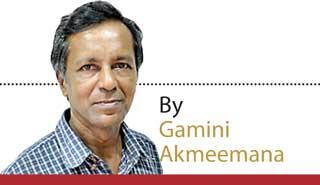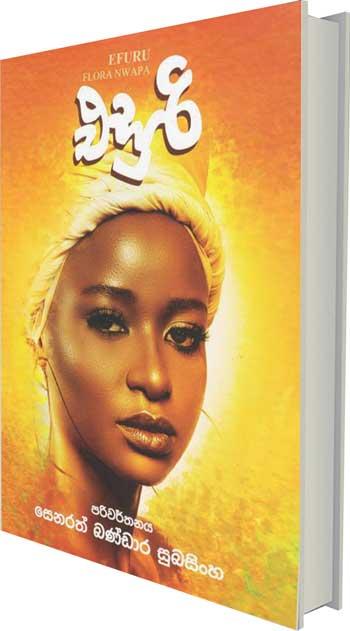Reply To:
Name - Reply Comment
 Writer and translator Senarath Bandara Subasinghe has translated a second African novel, Efuru, to Sinhala, thereby continuing his good work of introducing modern African literature to Sri Lankan readers, and making a valuable contribution to the world of translating novels by foreign authors into Sinhala.
Writer and translator Senarath Bandara Subasinghe has translated a second African novel, Efuru, to Sinhala, thereby continuing his good work of introducing modern African literature to Sri Lankan readers, and making a valuable contribution to the world of translating novels by foreign authors into Sinhala.
In addition to translating two African novels into Sinhala, Senarath has published a book of short stories as well as two children’s books.
Efuru will introduce Lankan readers to the fascinating world of myth, reality and tradition that African writers represent in their works
 Efuru, published by Nigerian novelist Flora Nwapa in 1966 as No. 26 in Heinemann’s African Writers series, became a landmark in African fiction. It’s the first novel by an African woman writer to be published in Britain, as well as the first recognized novel in English by an African female author.
Efuru, published by Nigerian novelist Flora Nwapa in 1966 as No. 26 in Heinemann’s African Writers series, became a landmark in African fiction. It’s the first novel by an African woman writer to be published in Britain, as well as the first recognized novel in English by an African female author.
Though perhaps not as widely known outside Africa as Chinua Achebe’s Things Fall Apart (published in 1958), Nwapa’s novel is a fascinating blend of African legend, traditional belief and an Igbo woman’s struggle to find love and security within marriage while trying to reconcile her own desires with the demands of tradition.
Efuru is now recognized as a landmark in African feminist literature. The author was awarded the title “Ogbuefi”, (which means “killer of cow”), an honour traditionally reserved for men. This was followed by further awards and honours for Nwapa by the Nigerian government.
When the book first came out, it was praised by African women writers but faced some hostility from male critics for ‘focusing too much on women at the expense of men.’ But author Rose Acholonu praised Nwapa and certain other African female writers as “pathfinders” who were able to “break the seals of silence and invisibility on the female protagonist by the early traditionalist male writers.”
Efuru, titled ‘Esuri’ in the Sinhala translation, portrays the rural African woman as a complex figure. The main protagonist of this story goes through two marriages but remains childless. Around her, we find a gallery of fascinating secondary characters brought vividly alive by the author. Critic Naana Banyiwe-Horne has praised the use of dialogue as a stylistic element thus: “
Senarath Bandara is uniquely placed as a translator of African literature because he has spent many years working for the African civil service. His sensitive appraisal of African culture and literature has given him valuable insights into African culture and the work of modern African writers. As most of our translators focus on Western and Latin American works, Efuru will introduce Lankan readers to the fascinating world of myth, reality and tradition that African writers represent in their works.
Furthermore, critics such as Naana Banyiwe-Horne praise the use of dialogue as a stylistic element of the novel; in discussing Efuru, Banyiwe-Horne states: “The constant banter of women reveals character as much as it paints a comprehensive, credible, social canvas against which Efuru’s life can be assessed.” Flora Nwapa uses dialogue as a medium to paint an accurate picture of what life for Igbo women is like. Critics such as Christine Loflin point out that the use of dialogue in Efuru allows a sense of African feminism to emerge, free of Western imposed values.
‘Esuri’ is published by Sarasavi Publishers and is priced at Rs. 775/=